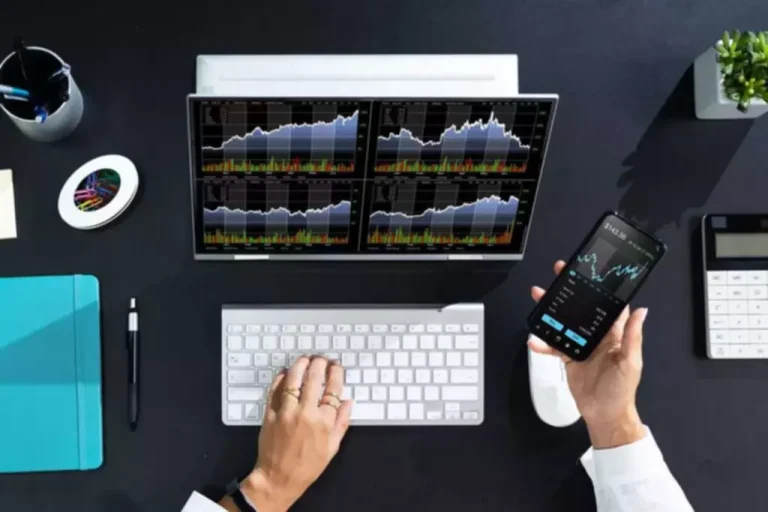The symbiotic relationship between market makers and takers is the cornerstone of environment friendly buying and selling. MMs, the quiet builders of liquidity, be certain that markets stay secure and accessible, while market takers, the bold executors of trades, inject energy and momentum into the system. They create a seamless environment where property are exchanged, prices are found, and markets flourish. Market takers are merchants or buyers who withdraw liquidity from the market by placing orders that get executed immediately, like Market orders. Basically, they’re taking liquidity from the market as the change fulfills their orders at present market costs from the order e-book.

With Out market takers, there is most likely not enough participants to transact at the prices supplied by market makers, which might result in a lower in market liquidity and effectivity. In the world of financial markets, market makers play an important role in making an attempt to make sure easy and efficient trading. Their major objective is to attempt providing liquidity to the market by repeatedly quoting both bid (buy) and ask (sell) prices for the property they deal with. Market takers are normally traders and retail buyers who earn earnings from the asset’s worth motion or use the asset’s worth motion as a hedge to the other positions of their portfolio.
By cashing in on the worth spread between buying and selling assets, market makers provide liquidity to exchanges, which in flip facilitates quick trade executions for retail traders. Market makers and market takers play pivotal roles in determining liquidity in crypto markets. Understanding liquidity is crucial for market makers and market takers for effective risk administration, environment friendly buying and selling strategies and revenue maximization. Market makers and market takers each play essential roles within the monetary markets by facilitating the shopping for and selling of securities. Both types of individuals are essential in ensuring a clean functioning of the market and ensuring https://www.xcritical.com/ that the prices of securities are honest and accurate.
- They cost a variety on both the buy and promote price of the asset for which liquidity is supplied.
- Market takers can place trades quickly and effectively without having to undergo a sophisticated course of to discover a buyer or vendor.
- Two important players—market makers and market takers—are on the core of this activity.
- Market takers are these market participants in the buying and selling ecosystem that seek instant liquidity to make a commerce and execute their place.
The charge quantity differs from one exchange to another and often additionally varies depending on the trading quantity and function. Despite their completely different roles, both market makers and market takers play an important role within the functioning of monetary markets. Market makers assist to guarantee that there could be always liquidity out there, while market takers help to drive value discovery.
For occasion, a trader might place a market order within the inventory or cryptocurrency market to capitalise on a time-sensitive opportunity, making certain their commerce is executed directly. A market without liquidity will have a large unfold, there will be few participants, and the value of the asset won’t be fair. In such a market, it is troublesome to promote the asset at a fair value as a outcome of there are few patrons. You can keep away from taker fees by inserting restrict orders, and due to this fact contributing to an exchange’s liquidity, as an alternative of market orders. At the beginning of each trading day, DMMs set the opening price for a security, which can be different to the closing price on yesterday as a end result of occasions which have occurred after hours. Throughout the day, they purchase and promote securities as required to make certain that prices are honest, and that the gap between “bids” and “asks” is as little as possible.
Exploring Eight Major Dex Aggregators: Engines Driving Efficiency And Liquidity In The Crypto Market
They act as liquidity and depth suppliers for the market in change for being able to revenue from the bid-ask spread on numerous orders in the exchange’s order book. The absence of liquidity translates to an inability to purchase or sell an asset, thereby detrimentally impacting its valuation. Additionally, market makers and takers contribute to safeguarding the asset from susceptibility to market manipulation—albeit to a sure extent. Nonetheless, it is vital to acknowledge that this charge arrangement can differ based mostly on the exchange. Some exchanges might even waive fees for market makers to incentivize liquidity provision, acknowledging its very important function in upholding the trade’s operational effectivity.
The difference between maker and taker fees is based on the impact of transactions made on cryptocurrency exchanges in the marketplace. “Makers” are those who present liquidity to the market by putting a new order; that’s, they set a value at which they want to buy or sell and await another person to simply accept this order. “Takers” are those that settle for orders already in the order book that could be executed immediately, thus “taking” liquidity. This symbiotic relationship between market makers and market takers creates a delicate equilibrium. Market makers’ constant liquidity tries to ensure seamless transactions, while market takers’ adaptive methods inject vibrancy and course.
MTs usually pay transaction fees, generally known as taker charges, when consuming liquidity. Their major concerns include slippage, paying higher costs throughout unstable markets, and executing trades at much less beneficial prices when liquidity is low. For example, a market taker putting a big buy order can deplete the sell-side liquidity, doubtlessly inflicting worth fluctuations. For example, if a market maker quotes a bid worth of $100 and an ask worth of $101 for a stock, the $1 spread represents their earning opportunity. This mechanism incentivises MMs to take on the risk of holding inventory whereas offering liquidity. They seize alternatives, react to trends, and swiftly try to execute trades to capture potential opportunities in the dynamic landscape.

Participation In Market Dynamics
When they quote the best worth they’re keen to pay (bid) and the lowest price they’re keen to simply accept (ask), the distinction is recognized as the bid-ask unfold. This unfold is important as a outcome of it impacts the benefit and value of trading—smaller spreads normally mean decrease prices and extra accessible trading for investors. Market makers are extra uncovered to threat as a result of they constantly maintain inventory and quote prices.
They continuously quote each purchase (bid) and promote (ask) prices for a financial instrument, making certain there is all the time a counterparty for any trade. MMs are the backbone of financial markets, as their presence prevents the market from stagnating and ensures value stability. Keep In Mind the makers laying out their merchandise on the shelves and waiting for purchasers to come? And as an alternative of eggplants and cucumbers, they’re buying the liquidity you promote through market makers.

On the opposite hand, market takers favor immediacy, executing orders at the best obtainable value. This type is good for these who prioritize speed and certainty of their trades, even at the price of higher charges. Your trading fashion will rely upon whether you value management over value and endurance or favor swift execution and immediate market participation. Market makers typically use restrict orders to submit prices on both the bid and ask sides. These orders are not executed immediately; as an alternative, they wait within the order e-book until one other trader (a market taker) matches them. This strategy permits MMs to manage their positions strategically and earn the unfold between their buy and promote costs.
Some exchanges charge varying charges for producers and takers, while others don’t differentiate between the two in any respect. Hence, you possibly can understand these individuals as risk-takers who make and lose money real quick. Modern market makers make the most of ways like market maker signals to extend their earnings and hence maximize potential returns. Market makers could also be present in each the public and private sectors, they usually have the accountability for maintaining enough liquidity within the marketplace. They have interaction within the danger of hanging onto property even when their values might decrease, and so they profit from the spread between the purchase and promote costs. Understanding the ‘maker vs taker’ mannequin is crucial for gaining insights into liquidity and trading dynamics, which instantly impact value fluctuations.
In conclusion, market takers are an essential part of the monetary market ecosystem. By taking the existing market costs and executing trades, they play a key position in creating liquidity and sustaining the efficient functioning of monetary markets. A market maker is a participant in a monetary market who offers liquidity to the market by providing to buy and sell assets at repeatedly quoted prices. They are intermediaries who facilitate the trading Decentralized finance of securities by providing a two-sided market for patrons and sellers. Market makers assist to make certain that there’s at all times a buyer and seller available out there to execute trades.
